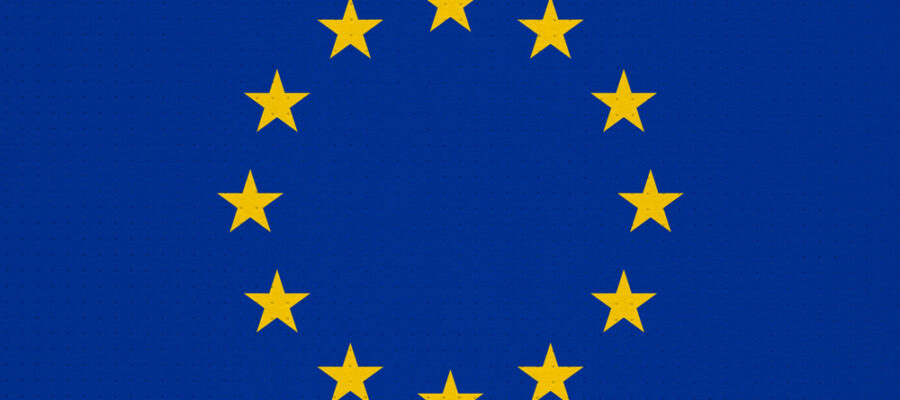Artificial intelligence (AI) technology has recently been in the spotlight as innovation branches to solve complex life problems. On Wednesday, the European Parliament revealed plans to regulate the artificial intelligence sector.
In a statement, the European policymakers confirmed to have drafted a new rule on AI regulation. The bill was presented at the European Parliament on June 15. Reportedly 499 members supported the bill, while 28 were against the new AI rules.
However, during the recent voting, 93 members were absent. This obliged the policymakers to reschedule the bill’s voting later this year.
Scope of AI Bill
In a statement, the Romanian politician Dragos Tudorache argued that the bill would pave the way for the development of AI technology. Tudorache believes that regulating the AI space will enable society to tap into the endless opportunities provided by this technology. He expressed his optimism that AI technology will soon uphold the well-being of society.
Irrespective of this, Tudorache underscored the need to ensure that the development of AI technology supports the European core values such as democracy, rules of law and other fundamental rights.
A scrutiny of the proposed bill revealed that the regulators would adopt a comprehensive regulatory approach to mitigate AI risks. The adoption of AI technology has diminished most individuals’ quality of life. A close review of the operation of AI-powered biometric surveillance revealed the risks posed by this technology.
Will the New Bill Address AI Risks?
Consecutively other AI tools under the high-risk category included the devices used in transport, law enforcement, and medical surgery, among educational tools. The bill will introduce a provision requiring firms to conduct risk assessment tests and security enhancement trials before commercializing their AI tools.
Under the risk spectrum, the bill has classified most AI tools for retail purposes, such as facial recognition devices, spam filters and generative chatbots as low risks. Companies engaging in the development of AI for retail consumers will be required to provide a well-structured procedure on the product’s use case and function.
Commenting on the new AI bill, MEP official Brando Benifei confessed that the world is watching the regulatory approach adopted by European legislators. He mentioned that as industrial heavyweights express worry about their latest development, the European authority remains ahead of the curve in addressing AI risks.
Benifei anticipates that in the advanced negotiations with the Council, the policymakers will be capable of safeguarding their democracies and freedom. He predicts that the new bill will support the development of creativity and innovative AI technologies.
Overview of Global Regulation of AI Technology
In his signing-off remarks, Benifei stated that the new AI provision addresses the prevailing market sentiment on the risk posed by this emerging technology. In an earlier report, Twitter boss Elon Musk engaged in a heated social exchange with the chief executive of OpenAI, Sam Altman. The two tech experts argued that AI adoption has resulted in job cuts, discrimination and biasness.
Following the release of the draft bill, the public demonstrated a positive stance that the new rules would shape the regulatory landscape of AI. Mark Surman, the president of the Mozilla Foundation, argued that the new bill would foster accountability and transparency in the development of AI technology. Surman applauded the EU regulators’ efforts to provide a comprehensive regulatory framework for AI.
However, speculations have been swirling on whether the new bill will impact overregulating the AI models, which might pose potential risks. The notion of AI risk and regulations has recently been the centre of discussion.
A statement from Computer & Communications Industry Association (CCIA) policy manager Boniface de Champris argued that the new bill should support the developers to build useful AI softwares. Champris underscored that the new AI rules should outline the proactive measures to mitigate the risks of the advanced technology.
The EU proposed regulatory action on AI, has resulted in speculation on whether Europe will outsmart the US in administering AI rules. As of this writing, the US ranks as a leading tech hub. Even though the US has been reluctant to formulate AI rules, the President Biden administration has recently urged AI development firms to ensure that their AI tools support equality.
On the other hand, Congress requested the market regulators to adopt a “wait and see” approach to AI-powered technologies.
All trademarks, logos, and images displayed on this site belong to their respective owners and have been utilized under the Fair Use Act. The materials on this site should not be interpreted as financial advice. When we incorporate content from other sites, we ensure each author receives proper attribution by providing a link to the original content. This site might maintain financial affiliations with a selection of the brands and firms mentioned herein. As a result, we may receive compensation if our readers opt to click on these links within our content and subsequently register for the products or services on offer. However, we neither represent nor endorse these services, brands, or companies. Therefore, any disputes that may arise with the mentioned brands or companies need to be directly addressed with the respective parties involved. We urge our readers to exercise their own judgement when clicking on links within our content and ultimately signing up for any products or services. The responsibility lies solely with them. Please read our full disclaimer and terms of use policy here.

